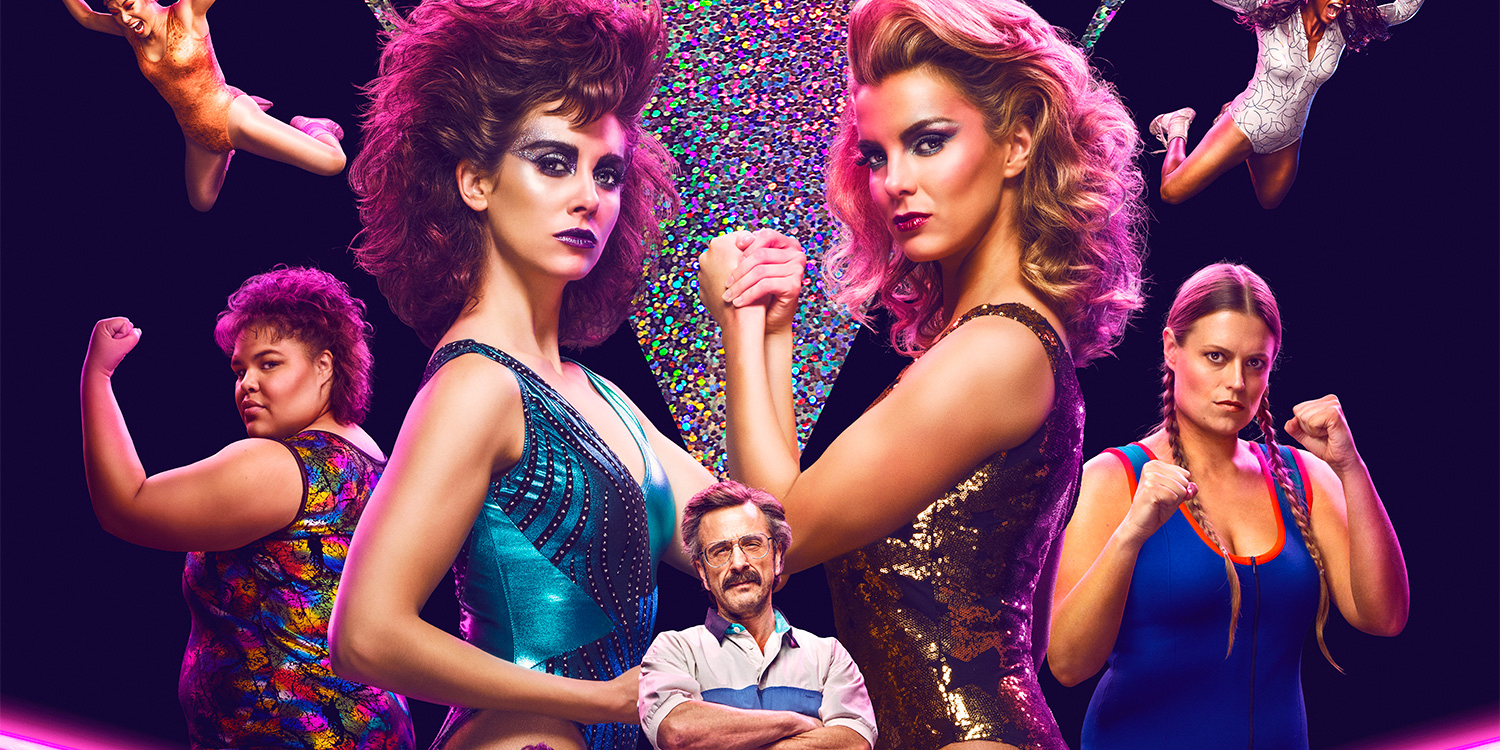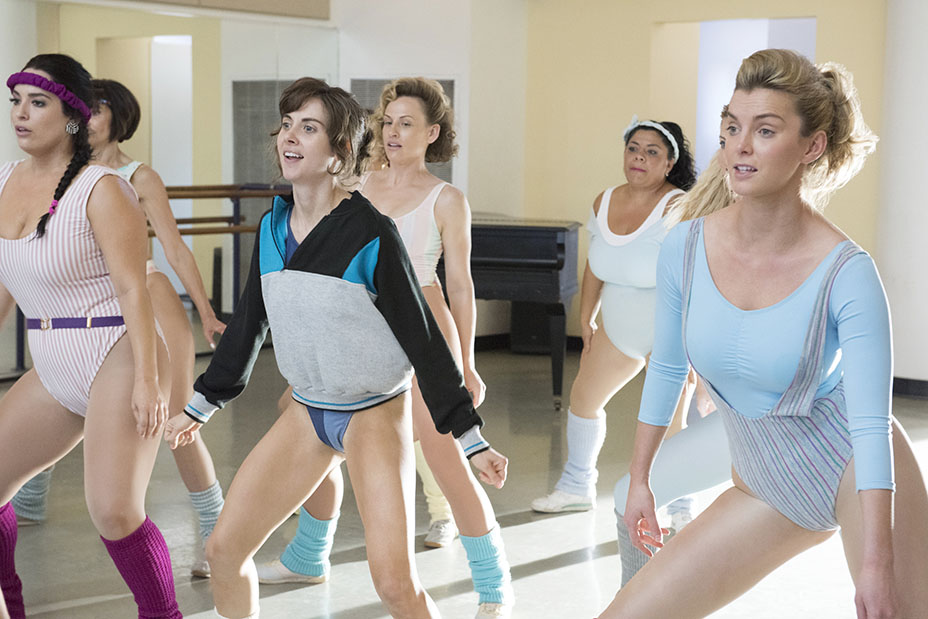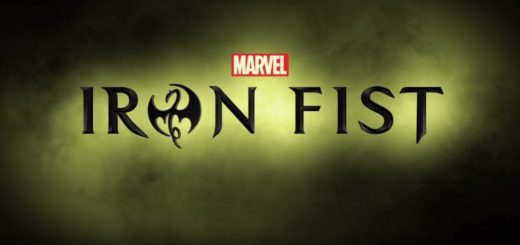GLOW Review

GLOW was destined to be a hit. It’s bursting with fresh talent, it’s created by ORANGE IS THE NEW BLACK alums, and it’s produced by Jenji Kohan. It’s unlike anything that’s been done before. GLOW is about the making of an actual women’s wrestling show named G.L.O.W (Gorgeous Ladies of Wrestling) that aired in the ‘80s. It centers around a diverse group of women who are eager for a chance at employment, and hungry for something different. It’s a wrestling, acting, occasionally rapping mashup as the ladies inhabit gross stereotypes in the ring and dismantle them outside of it. For example, Rhonda is the smartest person on earth, so she wears a pair of glasses and hits opponents over the head with a dictionary, while Tameé plays the welfare queen, because of racism and Reagan-era politics.
Alison Brie is fantastic as the lead, Ruth Wilder, an actress who is desperate for any sort of attention. She’s plucky, determined and such a believably bad actress it’s cringeworthy. She also subverts nearly every expectation of a female lead, so you’re left rooting for her, even when it’s uncertain whether or not she deserves it. Almost like she’s a real person.
Her chemistry with her best friend (with issues), Debbie (Betty Giplin), is intense and layered. Debbie is the perfect foil to Ruth’s wide-eyed overeagerness, as there’s this exhaustion that rests on her face, a longing for something she doesn’t know how to put into words. They both emote so much as the gulf between how they feel and how they want to feel widens over the course of the season.
Everyone on this show is fantastic; each character feels whole and thoughtfully drawn out in a short period of time. Carmen (Britney Young) is touchingly sincere as she grapples with her family’s wrestling legacy. Cherry (Sydelle Noel) is a compassionate badass and pretty much the coolest character ever, and Sheila the She-Wolf is a real wolf, on the inside (just go with it, okay?). The specificity of the supporting characters make you wish they had more to do.
While Ruth’s storyline is a compelling one (especially episode eight), the show would have benefited from widening its scope later in the season. Additionally, Marc Maron does a great job playing the aging director, Sam, but his storyline doesn’t really become engaging until the end of the season. For the bulk of the show he’s just yet another permutation of a talented, yet sexist, white guy with intimacy issues. Bash, on the other hand, feels like an entirely unnecessary character. There is nothing remotely relatable or interesting about his plight involving his parents cutting off his funds to finance the show. These women have actual problems.

They even make the ‘80s jumpsuits look pretty good
The parallels to ORANGE IS THE NEW BLACK are undeniable—the cast of mostly female up-and-coming actors, the specific irreverent strain of humor that elicits spontaneous laughter, and a, “Did she really just squirt a ketchup bottle into her bodysuit to fake a miscarriage?” There’s an earnestness, too, and a refreshing, effortless vulnerability as you see the hurt and love that exists between Ruth and Betty. You also realize that everyone here, even Sam, who snorts coke in the women’s locker room and tells Ruth he’s not sure if her face is fuckable or not, is genuinely trying to be a good person.
But GLOW is also its own thing. It’s funnier for one. It’s an outright comedy with bright colors and an oppression that’s only societal, not literal. It doesn’t hit as hard either, dramatically or politically, but I don’t think it was ever trying to. Nevertheless, GLOW is sure to be a stand out in Netflix’s lineup as the realism and diversity of women and women’s issues it depicts will undoubtedly satiate viewers hunger for quality content. It’s weird, it’s fresh, and it’s a mash-up of a million different things that have never been done before. And it’s all anchored by the awesome, empowering tribe of women who comprise the Gorgeous Ladies of Wrestling. Season Two, please.
Verdict: Recommend



